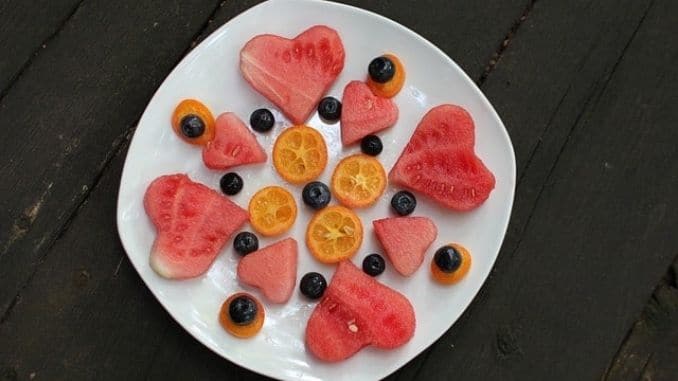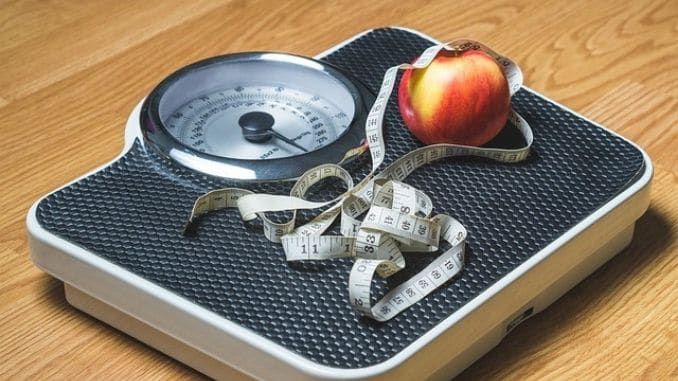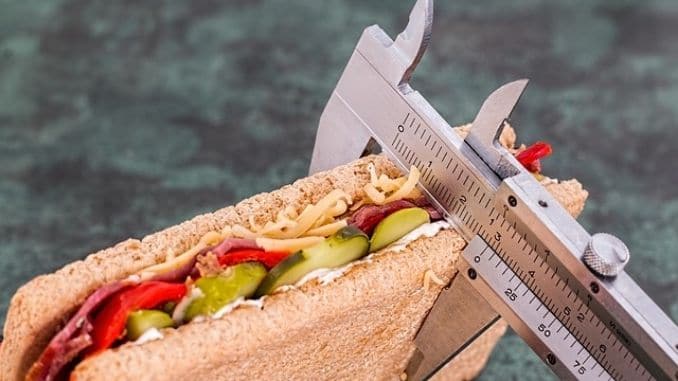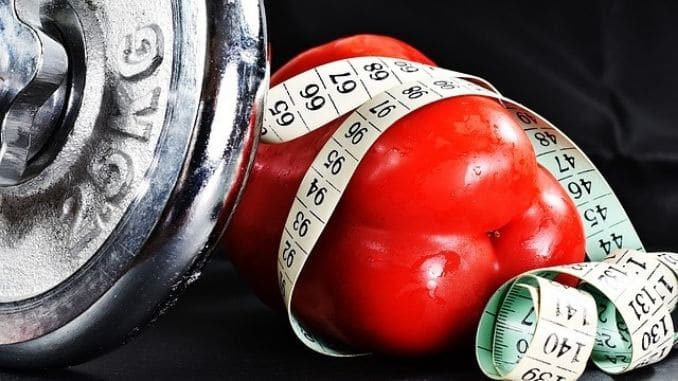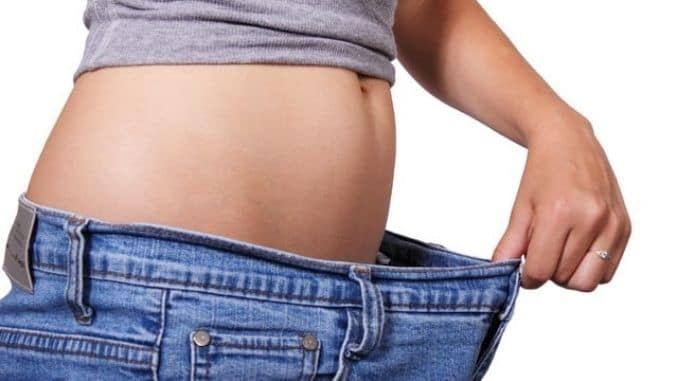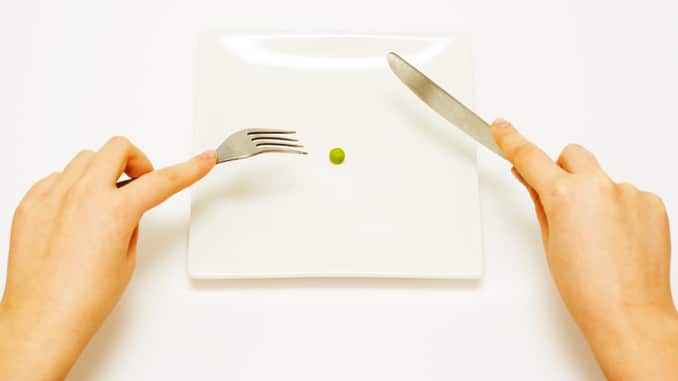
An estimated 45 million Americans go on a diet each year, according to the Boston Medical Center. A recent survey by the Centers for Disease Control and Prevention (CDC) shows that nearly half of Americans are trying to lose weight.
It makes sense, considering that nearly 40 percent of Americans are obese and more than 70 percent — nearly three-quarters — are overweight or obese. Both overweight and obesity pose a heightened risk for several of today’s deadliest diseases, including heart disease, stroke, and cancer.
Losing weight is a healthy goal, but how well are diets working for us?
Not great, if you look at the studies. Most show that even after going on a diet and losing weight, most people gain it back within a fairly short time.
In a 2013 study on weight loss, researchers noted that although a number of diet and exercise programs can be successful initially, they are “generally unsuccessful in achieving long-term weight maintenance, with the vast majority of patients regaining their lost weight during follow-up.”
Losing weight and keeping it off is a lot more complicated than we thought. There are some weight-loss techniques that do work, however. Experts looking at the data and rating the diets put out a “Best Weight-Loss Diets” for U.S. News & World Reports. According to their results, the top three are Weight Watchers, the Volumetrics Diet, and the flexitarian (semi-vegetarian) diet.
Then, there are those that don’t work and, worse, may put you at risk for additional health problems. We have the five worst ones for you below.
1. The Baby Food Diet
Worst Diets for Weight Loss: Made popular by celebrity trainer Tracy Anderson and celebrities like Gwyneth Paltrow, this diet is just what it sounds like — you replace two meals each day with baby food. Since each jar contains only about 20 to 100 calories, you’re bound to lose weight because you’re cutting back on calorie intake.
The problems are numerous:
- Taste: Most adults don’t like baby food, so trying to find some that you can stomach can be a challenge.
- Nutrition: Replacing regular meals with baby food could result in dangerous nutritional imbalances.
- Leaves you hungry: Because most baby food lacks the protein and fiber that adults need, you’re unlikely to feel satisfied and may find yourself sneaking some adult snacks in between.
- Digestive problems: Without that important fiber in your diet, digestive problems like constipation and diarrhea are common.
- Cost: Buying enough baby food to eat every day can be costly.
- Boredom: As adults, we crave variety in our diets. When you get bored, you’re more likely to cheat. Baby food is very bland with minimal chewing involved, leaving you craving something else.
Finally, this isn’t a diet you can sustain long-term, so even if you do lose weight, you’re likely to gain it back once you go back to your regular diet.
2. The Fletcherizing Diet
Worst Diets for Weight Loss: This diet is a workout for your jaw. You can eat anything you want, but you must chew each bite 100 times — basically until it’s liquefied. Created more than 200 years ago by Horace Fletcher — who was an art dealer, not a doctor or dietician — the diet can cause jaw cramps or even jaw pain.
Fletcher claimed he lost 40 pounds on the diet, but he chewed only 32 times and then spat out the remains, thinking that he absorbed most of the nutrients while chewing.
It’s true that chewing your food carefully can help digestion as digestion starts in the mouth, but 100 times or even 32 times is taking it a bit too far. Even worse, the diet can be dangerous if you truly avoid swallowing.
Other problems include:
- Fiber: Fiber doesn’t liquefy, so you may suffer from digestive problems on this diet if you don’t swallow. Many followers of “Fletcherizing” did suffer from digestive issues.
- Time: Who has time to chew everything 100 times?
- No scientific support: Although chewing more will cause you to take more time at each meal, there’s no evidence that it will help you lose weight.
This is another diet that isn’t sustainable long-term, so once you go off it, the weight is likely to return.
3. The Military Diet
Worst Diets for Weight Loss: This is an extreme meal plan that, strangely enough, has no real association to the military. Also called the “hot dog” diet, it involves eating things like tuna and hot dogs to “boost your metabolism” and lose weight.
Dieters expect to lose 10 pounds per week. They follow an extreme calorie-restricted diet for three days, then increase calories on the other four days.
During that three-day restricted diet, there is a list of approved foods for the three main meals, no snacks allowed. Even on the “off-diet” days, calories are restricted to only 1,500.
Because of the calorie restriction, it is possible to lose weight on the diet, but at a cost:
- Starvation: The plan limits calories to a level that is far below the typical calorie intake of the average person. This pushes the body into “starvation mode,” slowing metabolism and causing you to burn fewer calories per hour.
- Muscle loss: Without the proper nutrients and calories, much of the weight loss comes from the loss of muscle.
- Fatigue: Without enough calories to fuel your body, you’re going to feel tired much of the time.
- Lack of nutrients: There are far too few vegetables in the diet, increasing the risk of malnutrition.
- Gallstones: Rapid weight loss, such as this diet promises, can increase the risk of gallstones. When you lose a lot of weight in a short period of time, the liver may release additional cholesterol into the bile, causing problems with gallbladder emptying.
Like all of the diets listed here, this one is not sustainable long term. You may lose weight, but you’ll likely gain it back when you return to your regular diet. In fact, you may end up weighing even more than you did when you started because the diet slowed your metabolism.
4. The Master Cleanse
Worst Diets for Weight Loss: Also called the “lemonade diet,” this eating plan promises to help you drop 20 pounds in 10 days. Dieters consume only saltwater, herbal tea laxatives, and lemon water with cayenne and maple syrup. After 10 days on this restricted plan, they can reintroduce solid foods into their daily regimen slowly, along with juices and soups.
This diet has been popular with celebrities like Beyonce and is advertised as helping to “detox” the body while creating fast weight loss. In truth, it’s just a liquid-only diet that creates a calorie deficit and causes you to lose a lot of water weight.
The problems are numerous:
- Muscle mass: Because your body isn’t getting the food it needs, it will take it from your muscles. You’ll lose water weight and muscle mass on this diet — not the fat you were hoping to lose.
- Fatigue: Like any severely restricted diet, you’ll feel tired while on this one.
- Mood: Followers on this diet report side effects like irritability and mood swings.
- Nutrition deficiencies: You’re on a liquid-only diet for 10 days — that’s likely to result in nutritional deficiencies.
- Digestive problems: Followers report nausea and other problems. With all the liquid intake plus the herbal laxatives, you’ll need to stay close to the bathroom on this diet.
- Immune system: Depriving the body of the nutrients it needs can weaken its ability to fight off infections and inflammation.
- Blood sugar: This diet messes with blood sugar levels and is not recommended for those with prediabetes or diabetes.
- Slower metabolism: By robbing your body of most all of the calories it needs, you’re putting it into starvation mode, slowing metabolism naturally.
Additionally, after you finish this diet, you’re likely to gain all the weight back. Plus some more on top of that.
5. The HCG Diet
Worst Diets for Weight Loss: HCG stands for “human chorionic gonadotropin,” a hormone that’s extracted from the urine of pregnant women. It is produced during pregnancy to help maintain the proper levels of female reproductive hormones that support the development of the fetus.
For this diet, individuals limit their daily calories to only 500 to 800 per day and take supplements — either drops or injections — of HCG several times a week. The diet is advertised as helping you lose 20 to 30 pounds in 30 to 40 days. It is also supposed to reset your metabolism and change abnormal eating patterns.
This diet is so bad that the United States Food and Drug Administration (FDA) has advised consumers to stay away from products that contain HCG. Although the substance is approved as a prescription medication to treat fertility issues, it is not approved for over-the-counter (OTC) use or weight loss. In fact, the label for the medication has to say that it’s not effective for weight loss.
The FDA and the Federal Trade Commission (FTC) have issued warning letters to companies selling illegal homeopathic HCG weight-loss drugs that haven’t been approved by the FDA.
You can lose weight on this plan, but experts say it will be because of the extreme calorie restriction, not the hormone. That extreme calorie restriction is not healthy.
- Health effects: The FDA says that restrictive diets like this one cause an increased risk for gallstone formation, irregular heartbeat, blood clots, and electrolyte imbalance. Although studies are mixed, some have found evidence that HCG may increase the risk of cancer.
- Malnutrition: While on this diet, you will be missing out on important nutrients.
- False: Most HCG products on the market are homeopathic — they don’t contain any HCG. Real HCG is available only with a doctor’s prescription. OTC products that contain HCG are illegal.
- Side effects: While on this diet, it’s common to suffer from headaches, depression, irritability, edema, and fatigue.
- Metabolism: Because of the severe calorie restriction, the metabolism slows.
This is no long-term weight-loss solution. As soon as you go off the diet, you’ll gain the weight back, and then some. Furthermore, it can be dangerous for your health.
For your guide to the best foods to slim your body, check out The Best Foods that Rapidly Slim & Heal in 7 Days, here!

